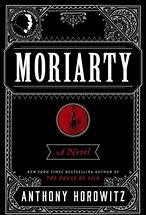Liverpool Sound and Vision rating * * * *
When you hold someone in such high regard, inevitably, cruelly, they will often at some point, let you down, even from beyond the grave the disappointment felt is almost akin to making the grief grow, become a monster, it can be unbearable and drive you to the point of reckless, or worse, emulation.
Too much emulation was perhaps the storm that finally broke Sir Arthur Conan Doyle, forever in the back of his mind, the great detective undoubtedly, like so many great characters of literature became more important to the public than the creator, the storm has to break, for the sake, if nothing else, of the author who resides in a state that closely resembles the dying. The decay of time even when things are going well. It is a memory to which all of us can understand if we find ourselves attempting to put the chiselled pen to paper, for how often do we see ourselves falter over the clues before us.
Anthony Horowitz arguably understands this in greater depth than most crime writers, forever it seems to be attached to the point of writing, he casts his eye to the greatest of them all and shows that it is all well and good being a master of the art on the side of solving a crime, but it is often to the dark that we are more often drawn. The Detective must be above the law, perfect but with flaws which make them individual, the supposed arrogance of Poirot, the unseen nature of sadness within the heart of Miss Marple, the alcoholism in Morse, to be a good detective you must observe the fragility in people, to be a great criminal you must know how to exploit it.
In his book Moriarty, Anthony Horowitz explores this with great effect, the art of the deception employed, against the subject at hand, and with even greater pleasure, to the reader. Being drawn in to a tale which takes place right after the supposed demise of London’s consulting detective at Reichenbach Falls, the stage, for it is the great act of illusion which carries the narrative so well, the deception that all readers wish for, but in their hurry to read the next page, often miss the clue presented right from the start.
Colin Dexter once said that the best way to show the reader the murderer was to leave it to the last two words of the book; Anthony Horwitz arguably goes one better, he leaves the clue right in front of the reader and still perhaps gleefully rubs his hands when it is missed.
To capture the heart of Sherlock Holmes without placing virtually any standard upon the creation himself is a work of art, one that makes Moriarty a fine, intelligent and consuming read.
Ian D. Hall
